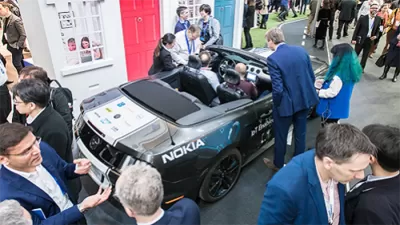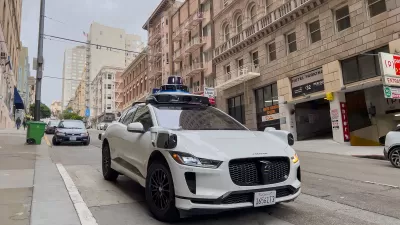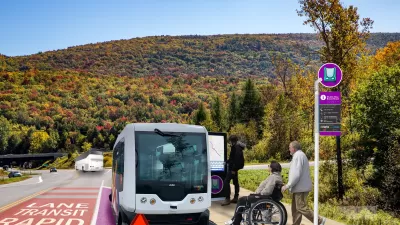Slashed budgets, executives heading for the exits, and delayed dreams—the autonomous vehicle industry is taking longer to get on the road than industry supporters expected.

“This is what happens when long-gestating new technology meets the short patience of public markets and harsh reality of rising interest rates,” writes David Welch for Bloomberg Hyperdrive.
The headline on the article is just as provocative, reading “Driverless Car Development Sets Ablaze a Bonfire of Billions.”
All in all, the promise of autonomous vehicles taking over the roads, relieving congestion, eliminating the need for parking, and ending traffic fatalities forever is still a pipe dream. And at such a cost. “Autonomous vehicle companies and suppliers have collectively spent around $75 billion developing self-driving technology, with scant sign of meaningful revenue emerging from robo-car services after all that cash incineration,” writes Welch.
A few examples of those ‘scant’ signs of self-driving progress can be identified in the news of recent weeks—like Waymo launching an autonomous taxi pilot in Los Angeles, a rural shuttle program in Minnesota, and an autonomous shuttle program to replace Jacksonville's aging monorail system.
In the meantime, however, autonomous vehicle companies are slashing budgets, pulling the plug, and saying goodbye to high ranking executives. “The lesson is that technology as radical as robotic driving was always better off in the incubators of daring venture capitalists, not the portfolios of trigger-happy stock traders,” writes Welch.
FULL STORY: Driverless Car Development Sets Ablaze a Bonfire of Billions

Planetizen Federal Action Tracker
A weekly monitor of how Trump’s orders and actions are impacting planners and planning in America.

Maui's Vacation Rental Debate Turns Ugly
Verbal attacks, misinformation campaigns and fistfights plague a high-stakes debate to convert thousands of vacation rentals into long-term housing.

Restaurant Patios Were a Pandemic Win — Why Were They so Hard to Keep?
Social distancing requirements and changes in travel patterns prompted cities to pilot new uses for street and sidewalk space. Then it got complicated.

In California Battle of Housing vs. Environment, Housing Just Won
A new state law significantly limits the power of CEQA, an environmental review law that served as a powerful tool for blocking new development.

Boulder Eliminates Parking Minimums Citywide
Officials estimate the cost of building a single underground parking space at up to $100,000.

Orange County, Florida Adopts Largest US “Sprawl Repair” Code
The ‘Orange Code’ seeks to rectify decades of sprawl-inducing, car-oriented development.
Urban Design for Planners 1: Software Tools
This six-course series explores essential urban design concepts using open source software and equips planners with the tools they need to participate fully in the urban design process.
Planning for Universal Design
Learn the tools for implementing Universal Design in planning regulations.
Heyer Gruel & Associates PA
JM Goldson LLC
Custer County Colorado
City of Camden Redevelopment Agency
City of Astoria
Transportation Research & Education Center (TREC) at Portland State University
Jefferson Parish Government
Camden Redevelopment Agency
City of Claremont





























